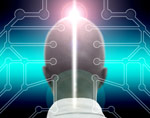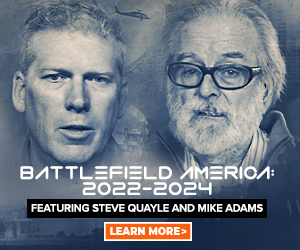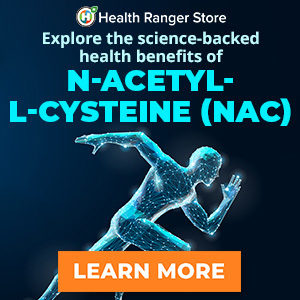
Emerging technology is not the answer to the world's social and economic problems
 Wednesday, February 15, 2006 Wednesday, February 15, 2006by Mike Adams, the Health Ranger Editor of NaturalNews.com (See all articles...) Tags: artificial intelligence, emerging technology, technology news |
- Newly released JFK files reveal Pentagon's role in creating Lyme disease and covid in the same lab
- Woman contracts WORLD'S DEADLIEST VIRUS after unknowingly being given the WRONG VACCINE
- Kiss Your Genetic Privacy Good-Bye! 23andMe Gets Green Light to Sell Your Intimate Genetic Details to Anyone They Want
- AI weather model outperforms traditional forecasts, boosts accuracy by 20%
- Revolutionize your diet with pomegranate: The miracle juice for gut health and metabolism
- Advisory: Ex-FBI agent exposes likely ATF honeypot operation selling illegal Glock switches
- The case for locking up the Deep State's biggest hatchet man...
- Analysis: The coming economic collapse, a mass uprising and Trump's three secret weapons to halt the growing revolt
- Trump administration CUTS FUNDING to Gavi, the Vaccine Alliance - a major blow to the Bill Gates-backed entity
- Sweden's migrant crisis deepens as failed green energy venture leaves thousands jobless, exposes systemic collapse
- At least 75 percent of Americans are unknowingly MEDICATED FOR STUPIDITY by fluoridated water – Utah now banning it
- Health Ranger Report: Ashton Forbes discusses TELEPORTATION ORBS and their role in MH370 disappearance
- U.K. unveils controversial pandemic preparedness tool: A double-edged sword?
- DHS Secretary Kristi Noem plans to dismantle FEMA
- Pediatric dentist exposes fluoride dangers as more states ban toxic water additive
- EPA banned chemical linked to cancer, Parkinson's and fatal heart defects in babies - now industry is lobbying to get it reinstated
- We are closer to all-out war in Europe, in Asia, and in the Middle East than most people realize
- Ontario judge rules against family of Canadian teen killed by the lethal COVID-19 injection
- Newly released JFK files reveal Pentagon's role in creating Lyme disease and covid in the same lab
- Analysis: The coming economic collapse, a mass uprising and Trump's three secret weapons to halt the growing revolt
- Trump nominates VACCINE ZEALOT Susan Monarez to lead the CDC, sidelining RFK Jr.'s reform efforts
- Trump's greatest betrayal so far: Accelerating Middle East wars, silencing dissent, and serving Zionist masters
- CDC finally halts $11 billion COVID funding scam as health officials admit the ‘pandemic’ was a fraud
- The hidden dangers in your kitchen: How cooking methods impact diabetes, cancer and aging
- BEWARE: USDA allows genetically engineered vaccines to infiltrate organic food production
- Obama accused of laundering USAID funds to fuel global protest movements, regime change operations
- DEADLY DECEPTION: How COVID vaccines increased mortality rates and why authorities hid the truth
- Here are TEN all-natural ways to protect your garden without using harmful chemicals
- Dr. Mike Yeadon releases 15-minute testimony - WATCH - about genocidal intent of COVID “vaccines”
- Festive flavors: The sweet history, nutritional profile and health benefits of pecan pie
- Big Pharma's media takeover: How drug companies bought the news - and your health
- Dr. Suzanne Humphries makes bombshell appearance on Joe Rogan podcast, exposing vaccine industry deception back to POLIOMYELITIS
- Elon Musk: Aliens could be here on Earth RIGHT NOW
- 5 Simple steps to boost your brainpower: How to strengthen executive function in a distracted world
- Trump reverses course on Gaza plan, says “nobody is expelling Palestinians”
- California's social media censorship law struck down: A victory for free speech or a threat to online safety?
- Newly released JFK files reveal Pentagon's role in creating Lyme disease and covid in the same lab
- EPA advisor admits the agency is funneling billions to climate groups ahead of Trump’s return to White House
- California's social media censorship law struck down: A victory for free speech or a threat to online safety?
- Dr. Mike Yeadon releases 15-minute testimony - WATCH - about genocidal intent of COVID “vaccines”
- The Health Ranger releases “Vaccine Zombie” song and music video, using AI-animated zombies for the music video
- Florida takes a stand: DeSantis proposes permanent ban on mRNA vaccine mandates
- The pandemic as a tool for INDOCTRINATION: Understanding “The Indoctrinated Brain” by Dr. Michael Nehls
- “Why we influenced the 2020 elections”: Facebook files reveal the coordinated effort to bury the Hunter Biden laptop story
- Mike Adams releases country western hit single: Goin’ Back in Time is Comin’ Home
- Mike Adams releases music poetry sensation: A Child of God
- Unpacking the Lies That We’ve Been Fed – new song and music video released by Mike Adams, the Health Ranger
- Michigan sheriff announces criminal investigation into 2020 election crimes, Dominion Voting Systems
- Migrants are taking advantage of recent hurricanes to scam residents and loot their homes
- House Intelligence Committee calls for the ARREST and PROSECUTION of Dr. Anthony Fauci
- Rep. Nancy Mace introduces bill to ban biological males from female facilities on federal property
- Peter Rost exposes Big Pharma corruption in his book “The Whistleblower: Confessions of a Healthcare Hitman”
- Former horse rancher and 6,000 other plaintiffs are suing Syngenta after paraquat exposure led to Parkinson's Disease
- Mike Adams releases new song and music video: Nothing More Disgusting Than a Globalist
- Red Cross issues warning to stop blood plasma donations from vaccinated people
- Scientists confirm: GENIUS brain function can be spontaneously unleashed in humans without any apparent cause
- EPA advisor admits the agency is funneling billions to climate groups ahead of Trump’s return to White House
- HYSSOP: What research reveals about the health benefits of this ancient holy herb
- Two containers with completed ballots fall out of truck in Florida
- Fully vaccinated about to see “tsunami” of illness and death, warns virologist
- Global leaders unite to clamp down on “misinformation” with UN-backed Cascais Declaration
- BREAKING: 2025 NDAA authorizes mandatory military draft of WOMEN across America… as Pentagon pursues global NUCLEAR war with both Russia and China at the same time
- Michael Yon warns of a ZIONIST TAKEOVER in Trump’s second administration
- BOMBSHELL: DNA testing kits are a SCAM to develop ethnic-specific bioweapons
- Ozempic and Wegovy weight loss drugs are injectable LIZARD VENOM PEPTIDES that may unleash a devastating wave of organ failure… side effects align with symptoms of SNAKE BITES
- Israeli soldiers accused of even more torture and abuse in the West Bank
- These 13 countries just signed an agreement to engineer a global FAMINE by destroying food supply
- NASA admits that climate change occurs because of changes in Earth’s solar orbit, and NOT because of SUVs and fossil fuels
- RFK Jr. clears key hurdle: Sen. Susan Collins backs controversial HHS nominee, signaling a new era for health policy
- Sermon 30: How Jesus reveals Caesar’s FAKE CURRENCY and FALSE AUTHORITY
- Coriander seeds: Ancient medicine backed by modern science
- Arizona officials claim Maricopa County needs 10-13 days to tabulate results of the election
Now, what's wrong with this? First of all, the brain does not store information in bits and bytes. The brain is not a digital storage system. The brain, and more importantly, the mind, is holographic in the way that it stores and retrieves information. And, by the way, the information that the brain stores isn't even really stored with perfectly accuracy anyway.
Peoples' perceptions are distorted; peoples' memories are distorted. They're fuzzy. They waver in and out. They can be created on the fly, so it's not like you have a databank in your head that's just sitting there waiting to be downloaded. All the memories and perceptions in your head are shifting around all the time. What you think you remember today may not have happened that way at all. In fact, very little of what you remember actually happened that way.
In other words, we don't see reality. We experience a very tiny interpretation of the world around us. The universe out there, and what's encoded in our head, is really just an experience; a holographic representation of various sensory inputs, emotions and experiences at that time. This it not just some data, and this is not like a zip file. You can't just download it into a computer or slap it onto a flash drive.
Human intelligence can only be emulated by technology
So, I don't care how advanced computing technology gets, you're never going to be able to just download your memory like a giant storage file, because it's not stored that way. Your brain is not a giant flash chip.Now, what's really important about this, and what's worth discussing about this news, is that there continues to be this great tendency by scientists, especially those in the fields of artificial intelligence and computer science, to think of the human brain as being just some really advanced computer. They think that if computers keep getting more and more advanced, at the pace that it's going today, if Moore's law holds up, and they can keep cramming more transistors onto computer chips at ever increasing rates -- they figure sooner or later, these computers will achieve consciousness.
I completely disagree. I think that computers could someday be able to emulate intelligence. There is no question in my mind that there will be artificial intelligence. But consciousness? That's another matter completely. We don't even really know what the nature of consciousness is. We don't really even know ourselves yet. Even our best scientists really have no clue how consciousness comes into being. How many people sit down and truly explore the meaning of self? How many people even know themselves? How many people understand consciousness even at a basic level? Very few, I think. The people who do are not scientists, by the way. They tend to be spiritual people who meditate and are in touch with themselves and the universe, and who don't have any technical training in the sciences.
But technicians out there love to look at the human body and the human mind as nothing but a collection of parts. This is not only true in the fields of intelligence and AI; it's also true, of course, in medicine. Doctors and surgeons, especially, tend to look at the human body as a collection of parts; they think that if we just understand all the parts, then we'll understand the organism. They think if you can x-ray and image and categorize and name all the individual components of the human body, then you understand all the biochemistry that's taking place. And then you understand the person. I completely disagree with that.
You can get lost by looking at the little components, all these little parts. You can only understand a person by taking a step back and looking at the whole person with a holistic view of health and consciousness. So, what does all this have to do with downloading your brain into a computer? We have to look at the holistic or holographic view of what human consciousness is, and even just what a basic human memory is.
"Reality" defined
In fact, if you get down to it, what is the nature of our reality, and how is it that we perceive this reality when much of it, frankly, isn't even there? Think about it. If you know anything about physics, especially quantum physics, you know that all of this so-called stuff that we think is around us is almost entirely not there from a technical point of view.For example, consider a wall. A wall is made of certain elements made up of atoms. If you look inside those atoms, you can potentially name electrons, neutrons and protons. If you look in those, you find out it's nothing but vibrations. It's just probability waves that appear as reality, that appear to be substance, but is really not there at all. It's almost all empty space. The closer you look at it, the more it disappears, so even the stuff we think is real isn't real.
Even our memories aren't real; our memories are just holographic interpretations of our experience of this so-called real world, which isn't real anyway. Our memoirs are based only on those things that we can perceive. And our perception is very, very limited. If you look at the entire electromagnetic spectrum, and then you take a look at the tiny sliver of that spectrum that's visible light, that is what we see. What we see is just a small fraction of what's available in the electromagnetic spectrum. Even honeybees see more then we do. Other animals hear at much higher frequencies than we do. What we feel, touch and taste are basically just very crude representations of what's going on around us. It's all interpreted in our heads through a system of filters, beliefs and distortions, and then it becomes a memory. So, memory is not at all a representation of what's going on in the world.
Artificial Intelligence is about to take a quantum leap forward
Now, I don't discount the idea that computing power is going to take a quantum leap forward, and I use "quantum" deliberately in this case. If we have quantum computers and they become practical, then watch out, because there are going to be some real questions about what is reality at that point. Because if a computer can effectively solve problems by sending little qubits into other dimensions and calculate problems in an infinite number of dimensions and bring the solutions back in this world and hand it over to us, that's mind blowing.Yet that's happening right now at the National Institute of Standards and Technology, in Boulder, Colorado. They're doing this stuff; they have computers that reach into other dimensions and bring solutions back into this dimension. They're doing this today. If they can make this practical and increase the number of bits, this thing will really, again, cause us to question the whole nature of reality.
So I don't discount the fact there is really some amazing technology out there, and that artificial intelligence will certainly become a very important factor in the ongoing march of technology and how it affects society. What I'm questioning is that we'll be able to interface this digital world of computers with the world of the human mind and consciousness. I don't think these connect very well. It's not like we have a VGA connection in the back of our heads, and if we plug it into our computer monitor while we're sleeping, we could view our dreams. It would be cool, but it's not going to work that way; it's going to take a lot more than just raw computer power to even come close to figuring out how to interface with our minds.
I am very interested in the impact of emerging technology on our civilization, especially those that can enhance the quality of life on this planet -- so, even though I'm a futurist, I'm also very skeptical of other futurists. I think a lot of times when people talk about these emerging technologies, it's just a lot of hyping, someone trying to get a lot of grant money, or somebody just trying to attract some attention talking about something that really isn't practical.
You see this with nanotechnology all the time. "Nanotech, nanotech." It's nanotech all the time. Why? Because that's what gets you grant money in the scientific community these days. If you look at the statistics today, and you think about how many researchers and scientists are working on "nanotechnology," you think, "Gee, this field is exploding." It's not true. It's just that everybody who used to work on less glamorous projects just renamed all their stuff to be nanotechnology. So, now they call it nanotech, and they're getting grant money, and the statistics show that there's all this nanotech research going on. It's the same research; it's just been renamed.
Now, there is some new nanotech research going on, but I'm skeptical about this, as well. They say they'll be able to build an army of nanotechnology robots, little molecular-scaled robots that will run around your body and cure cancer. That's right, these little robots are going to snip away at cancer tumors, and I've said this before, but we already have such a system. It's in our bodies right now. It's called the immune system, and it's the most advanced nanotechnology in the world. This stuff is amazing. It cures cancer every single day in every single human being who's alive right now. It takes care of the job for us. We don't need microscopic robots to take care of it, we just need to take care of the immune system we have right now.
Social and political implications of emerging technology
So getting back to the original item here, what if we were able to download our brains into computers? It sounds great in terms of technology, but what about the social and political implications of this? What would it mean? Would it mean that if you were suspected of committing a crime, the courts would force a download of your brain? Would it mean that your memories and thoughts were no longer your own?If it did mean that, then, of course, we'd have an era of thought crimes -- an era where it could be criminal to think the wrong thoughts or have the wrong memories, or just to have the wrong imagination. If you happen to have the wrong images pop up into your head, and it gets downloaded onto the computer, all of a sudden, you're a criminal. You're an enemy of the state. Why? Because you don't fit the norm. Because you have ideas that they consider to be a threat to their stranglehold on power. You've got to think about these things. Technologies can be promising, but they can also be very threatening, not only to our sense of who we are, but also to our security and privacy as individuals and our very freedoms.
Today in the United States, we have a federal government that is spying on millions of U.S. citizens. Our Dept. of Homeland Security is reading your international mail, digitally filtering all your international phone calls for audible keywords, scanning virtually all internet traffic, and even tracking citizens by their cell phone transponders. All of this is blatantly illegal, by the way. Do you have any doubt that this police state government would hesitate to download and scan your memories and thoughts if the technology were available? All this stuff was considered science fiction by most Americans until recently, when the mainstream press finally woke up to the realities of the NSA spying on American citizens (but those of us "in the know" have been writing about these Police State tactics for years. Just check the archives on www.Rense.com to see for yourself. Or search Google for the "echelon project.")
Ultimately, what I'm trying to say is that technology is not the solution to uplifting our civilization. It is not the answer to the problems in our world. They say we have hunger and starvation in Africa. We have the technology to grow all the food we need. We have an abundance of food right here in the United States, that is somehow not getting to the mouths of the people over there who need it. We're paying farmers to not grow crops, so how can there be a food shortage? It's not a food problem. It's not a farming technology problem. It's a political problem. It's an issue of control. Who's controlling those people? Who benefits from scarcity? Who benefits from having a population that's always at war?
More technology is not the answer. It sounds cool, and all those new electronic gadgets look cool. But technology is not the answer to solving the problems of our civilization. So what is the answer, you might ask? Well, look; I'm no master of this. I'm still a student of all of it. But I've got some ideas that the answers are in the world of consciousness, spirituality, ethics and empathy. I think the answers are in things like being able to actually care about fellow human beings and act on that care, and making efforts to end the suffering in the world, rather than trying to maintain control over people all the time. The answers are found through spiritualism, meditation and self-introspection. The answers are essentially found by looking inward, not by examining the physical stuff of the world around us and coming up with more and more clever ways to alter it or control it.
We have to look inward, and stop thinking that the answers can be found in technology, chemistry, gene therapy and medical science. These are not the answers; these are just distractions from the real answers. You can have the best technology in the world, but you will still not solve the problems of this planet unless you can act with integrity, ethics, honesty, empathy, humility and compassion. These are the issues that really matter.
Frankly, if we mastered those as a world, we wouldn't need much technology. We really wouldn't. We have plenty of technology today to take care of all the basic needs of everyone; enough to put a home over people's heads, to feed the population and to cover basic health. What we're lacking is that sense of awareness, ethics, spirituality and a higher level of operation and thinking, or rather, experiencing a higher level of being. Ultimately, I don't want a world where a bunch of computers are looking into our heads. I hope to see a world where individuals examine their own minds. That, to me, would be the most amazing breakthrough of all.
Artificial intelligence at FETCH.news
Get independent news alerts on natural cures, food lab tests, cannabis medicine, science, robotics, drones, privacy and more.
 About the author:Mike Adams (aka the "Health Ranger") is a best selling author (#1 best selling science book on Amazon.com) and a globally recognized scientific researcher in clean foods. He serves as the founding editor of NaturalNews.com and the lab science director of an internationally accredited (ISO 17025) analytical laboratory known as CWC Labs. There, he was awarded a Certificate of Excellence for achieving extremely high accuracy in the analysis of toxic elements in unknown water samples using ICP-MS instrumentation. Adams is also highly proficient in running liquid chromatography, ion chromatography and mass spectrometry time-of-flight analytical instrumentation.
About the author:Mike Adams (aka the "Health Ranger") is a best selling author (#1 best selling science book on Amazon.com) and a globally recognized scientific researcher in clean foods. He serves as the founding editor of NaturalNews.com and the lab science director of an internationally accredited (ISO 17025) analytical laboratory known as CWC Labs. There, he was awarded a Certificate of Excellence for achieving extremely high accuracy in the analysis of toxic elements in unknown water samples using ICP-MS instrumentation. Adams is also highly proficient in running liquid chromatography, ion chromatography and mass spectrometry time-of-flight analytical instrumentation.
Adams is a person of color whose ancestors include Africans and Native American Indians. He's also of Native American heritage, which he credits as inspiring his "Health Ranger" passion for protecting life and nature against the destruction caused by chemicals, heavy metals and other forms of pollution.
Adams is the founder and publisher of the open source science journal Natural Science Journal, the author of numerous peer-reviewed science papers published by the journal, and the author of the world's first book that published ICP-MS heavy metals analysis results for foods, dietary supplements, pet food, spices and fast food. The book is entitled Food Forensics and is published by BenBella Books.
In his laboratory research, Adams has made numerous food safety breakthroughs such as revealing rice protein products imported from Asia to be contaminated with toxic heavy metals like lead, cadmium and tungsten. Adams was the first food science researcher to document high levels of tungsten in superfoods. He also discovered over 11 ppm lead in imported mangosteen powder, and led an industry-wide voluntary agreement to limit heavy metals in rice protein products.
In addition to his lab work, Adams is also the (non-paid) executive director of the non-profit Consumer Wellness Center (CWC), an organization that redirects 100% of its donations receipts to grant programs that teach children and women how to grow their own food or vastly improve their nutrition. Through the non-profit CWC, Adams also launched Nutrition Rescue, a program that donates essential vitamins to people in need. Click here to see some of the CWC success stories.
With a background in science and software technology, Adams is the original founder of the email newsletter technology company known as Arial Software. Using his technical experience combined with his love for natural health, Adams developed and deployed the content management system currently driving NaturalNews.com. He also engineered the high-level statistical algorithms that power SCIENCE.naturalnews.com, a massive research resource featuring over 10 million scientific studies.
Adams is well known for his incredibly popular consumer activism video blowing the lid on fake blueberries used throughout the food supply. He has also exposed "strange fibers" found in Chicken McNuggets, fake academic credentials of so-called health "gurus," dangerous "detox" products imported as battery acid and sold for oral consumption, fake acai berry scams, the California raw milk raids, the vaccine research fraud revealed by industry whistleblowers and many other topics.
Adams has also helped defend the rights of home gardeners and protect the medical freedom rights of parents. Adams is widely recognized to have made a remarkable global impact on issues like GMOs, vaccines, nutrition therapies, human consciousness.
In addition to his activism, Adams is an accomplished musician who has released over a dozen popular songs covering a variety of activism topics.
Click here to read a more detailed bio on Mike Adams, the Health Ranger, at HealthRanger.com.
Take Action: Support Natural News by linking to this article from your website
Permalink to this article:
Embed article link: (copy HTML code below):
Reprinting this article:
Non-commercial use OK, cite NaturalNews.com with clickable link.
Follow Natural News on Facebook, Twitter, Google Plus, and Pinterest
Science News & Studies
Medicine News and Information
Food News & Studies
Health News & Studies
Herbs News & Information
Pollution News & Studies
Cancer News & Studies
Climate News & Studies
Survival News & Information
Gear News & Information
News covering technology, stocks, hackers, and more



"Big Tech and mainstream media are constantly trying to silence the independent voices that dare to bring you the truth about toxic food ingredients, dangerous medications and the failed, fraudulent science of the profit-driven medical establishment.
Email is one of the best ways to make sure you stay informed, without the censorship of the tech giants (Google, Apple, Facebook, Twitter, YouTube, etc.). Stay informed and you'll even likely learn information that may help save your own life."
–The Health Ranger, Mike Adams













































